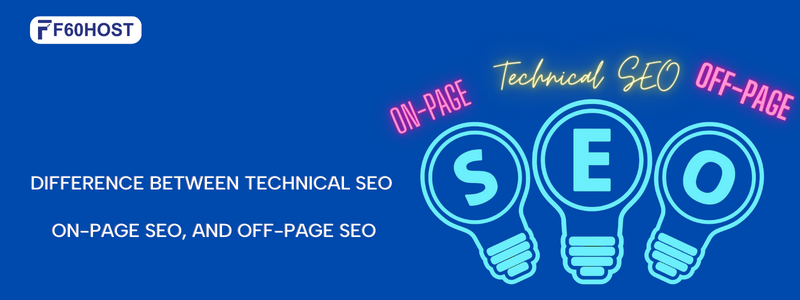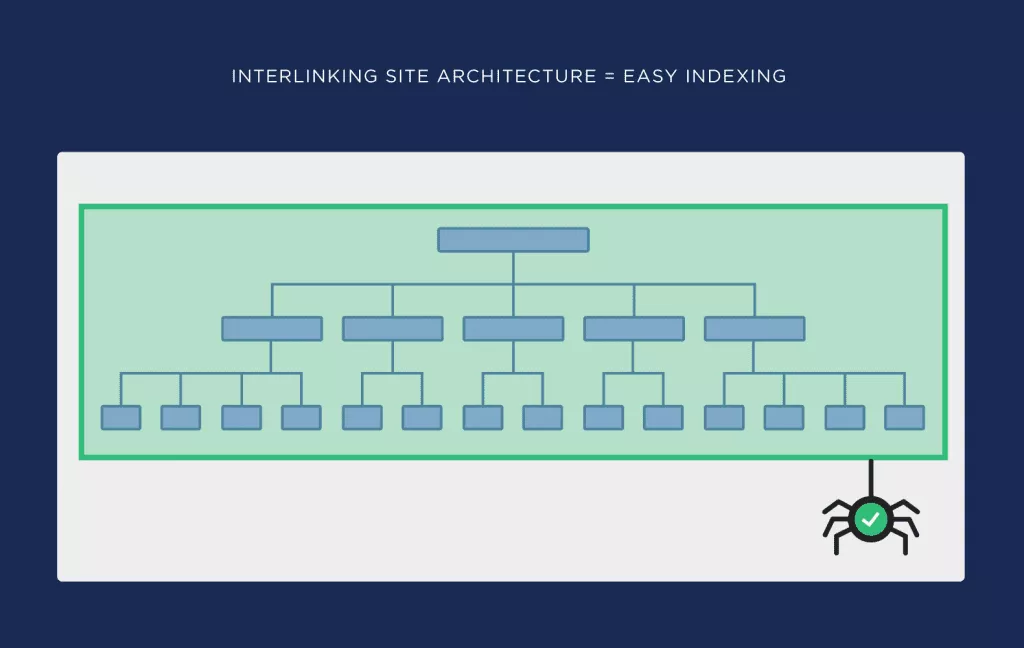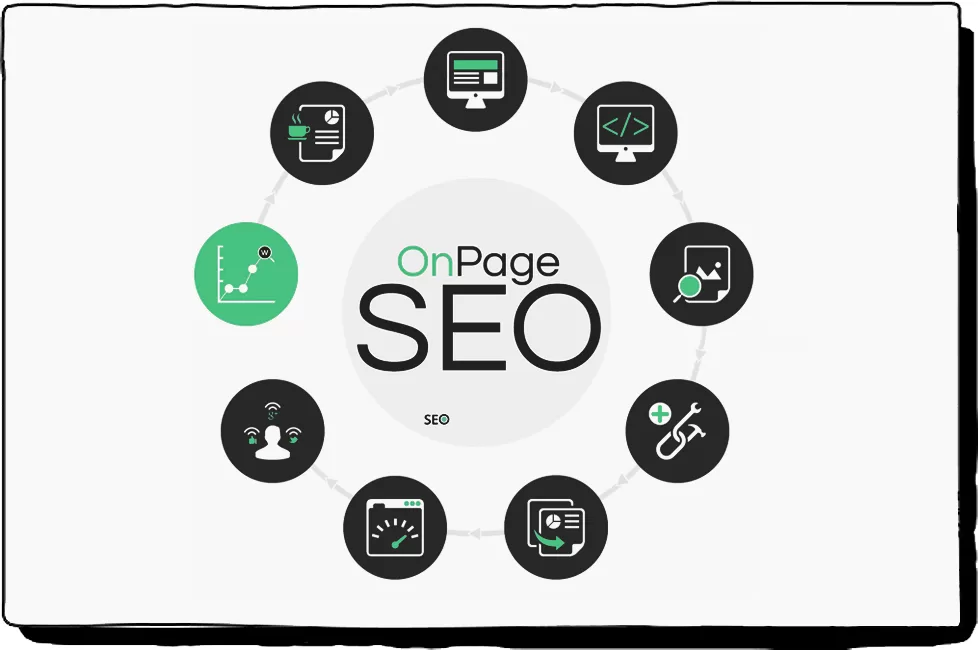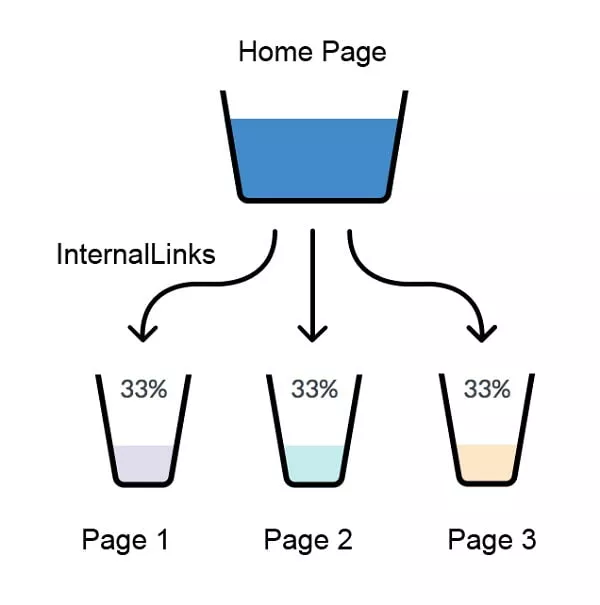Difference Between Technical SEO, On-page SEO, And Off-page SEO
There are three types of SEO Technical SEO, On-page SEO, And Off-page SEO. The goal of search engine optimization is to increase your visibility and rating on pertinent search queries through the use of a variety of various tactics and strategies. But there are various kinds of SEO. All three types aim to increase your presence on search engines, but their focuses are different.

Everything Know About Technical SEO
technical content page The best place to start is frequently with SEO, as you will need to collaborate with your web developer or IT team to optimize your website’s technical components.
What is Technical SEO?
Technical SEO works to optimize your website’s technical components. These technical factors include the site’s structure, mobile friendliness, and speed.
Why is Technical SEO Important?
The ideal place to start your SEO efforts is with technical SEO, which works to make sure that your website is appropriate for search engines to crawl and index. Any other SEO investment won’t yield results without having search engines crawl and index your website, which is what allows search engines to rank your site in the first place.
What are the Technical SEO Elements?
There are many SEO factors to look out for, but a few of the more crucial ones are as follows:
· Site Speed
One of the main ranking variables taken into account by Google is site speed. You want your website to load quickly and smoothly.
· Site Security
Security online is crucial, and not just for Google. To improve your website’s ranking and better protect your brand online, make sure it is encrypted and safe.
· Mobile Friendliness
Because Google and other search engines priorities mobile users, your website must be fully responsive and optimized to be viewed and used on phones, tablets, and desktop computers.
· Site Structure
Your website needs to be intuitively organized and useful. This means that in addition to having clear parent, child, and grandchild pages, you also need to look for and get rid of any 404 or 301 redirects. Use the appropriate hreflang tags if your website has several translations (for instance, in different languages).
· Unique, Enriched Content
Where your technical SEO efforts start to leak into your on-page SEO efforts are in original, fully enriched content that is not repeated anywhere. This indicates that the material on your website is unique and well-written and cannot be found anywhere online.

How Do We Discover Technical Issues with Your Website?
A technical SEO audit is required to identify the technical problems with your website. Understanding the problems preventing your website from performing at its best will be made easier by this audit. The working plan that SEO specialists constantly develop will increase your online presence right away. To identify problems and implement fixes, instruments like Screaming Frog and others will be used.
Implementing an XML sitemap, enhancing internal linking, and even applying schema markups throughout your site can all be done to enhance its structure and aid users and search engines in comprehending your website and its contents.

Everything Know About On-Page SEO
Though on-page SEO is in a different section, it is incorrect to think of it as an on-page SEO vs technical SEO situation. They both occur on your website, and on-page SEO can encompass technical SEO as well. The only reason why there is an on-page vs off-page SEO section here is for clarity.
What is On-Page SEO?
On-page SEO additionally concentrates on the website optimization work you have made. Consider technical SEO as a part of on-page SEO rather than contrasting it with on-page SEO when comparing on-page and technical SEO. To increase your E-A-T (expertise, authority, and trustworthiness) qualities, on-page SEO should start with technical adjustments and progress on to content and other SEO methods.
Why is On-Page SEO Important?
One of the best investments you can make in the caliber of your website is on-page SEO. By enhancing your domain authority, on-page SEO helps you rank higher for pertinent search terms. Additionally, it works to raise the quality of your website for actual users by enhancing the information, user interface, and accessibility.
Before beginning your off-site SEO activities, you should have a completely optimized website because a subpar website can undermine even the finest off-page SEO tactics. By putting on-page optimization first, you may increase your site’s quality and exposure while advancing all subsequent SEO and digital marketing initiatives.
What Is Included with On-Page SEO?
Your on-page SEO strategy concentrates on and enhances a variety of various traits.
- Content
- Meta Titles and Descriptions
- Canonical Tags
- Alt Text
- URL Structure
- Unique Content
- Image Optimization
- Technical SEO
How to Improve Your On-Page SEO
An audit is frequently the first step in improving your on-page SEO. That technical audit from earlier can probe into issues with content, keywords, and linking in addition to technical problems. In general, you should adhere to these four essential stages to boost your on-page search engine optimization efforts:
1. Improve Your Technical SEO
A wonderful method to offer your website a clear, solid foundation from which to operate is to improve its technical aspects. Additionally, it can later help you identify content and other problems that you will then need to fix in the following step.
2. Create Amazing, Enriched Content
All content must be optimised, enhanced with data, media, and links, and it must, of course, be appealing to actual users. Everything can help increase traffic to your website and encourage more click-through traffic from one page to another, including your homepage, blog posts, and even your meta descriptions. Unique, in-depth, properly prepared, and written with genuine audiences in mind content is required.
3. Use a Smart Keyword Strategy
Your PPC advertising, social media marketing, and link building initiatives can all benefit from an effective keyword strategy. It is advisable to begin your attempts at content optimisation with a successful keyword approach. Your keywords must not only be pertinent but also have the right user intent and be placed in the appropriate locations. Your content, titles, meta descriptions, and even your alt tags should all contain keywords. But there’s a difference between using keywords strategically and stuffing your content with them. The former helps to boost your SEO efforts, but the latter may harm your website.
4. Have an Excellent Internal Linking Structure
Internal connections and external links to reputable websites make form a great linking system.

Internal connections and external links to reputable websites make form a great linking system. For a website to be fully optimised, you need both. Particularly internal links are quite helpful for search engine algorithms to navigate your website and comprehend the most crucial sections therein. Internal links help to increase click-through rates, lower bounce rates, and prolong user engagement on your website.
Everything you Need to Know About Off-Page SEO
Due of the large number of parties involved that you can not directly control, off-page SEO is far more complicated. In light of this, you should invest in both on-page SEO and off-page SEO as they are both crucial to your SEO strategy and will help your site get the most return on your investment.
Although that is the most obvious distinction, the biggest difference between on-page and off-page SEO is not where your SEO efforts are concentrated. The tools and tactics you will employ will be the most significant distinction.
What is Off-Page SEO?
Off-page SEO refers to a broad range of techniques used to increase your search engine optimisation on any website other than your primary domain. You might even have direct influence over some of these components, like your social network accounts or Google My Business profiles, but in other circumstances, like link development, you won’t.
Why is Off-Page SEO Important?
Off-page SEO is one of the most important investments you can make for your business, and done right works to bring in plenty of organic traffic and search engine traffic to your site.
What is Included in an Off-Page SEO Strategy?
Your off-page SEO plan should always begin with an off-page SEO audit for the greatest outcomes. You can learn more about your link profile, its health, and what you can do to make it better by using this audit. The good news is that link building is not the only option to enhance your off-page SEO. There are various strategies to enhance your link building approach.
Off-page SEO generally has three main branches, which are as follows:
· Social Media
Dofollow and nofollow links are mixed together in a healthy link profile. Through paid advertising and organic engagement, social media is a great way to increase those nofollow links and raise brand awareness.
Nofollow links boost organic traffic but do not improve your search engine position. Consequently, having active social media accounts gives you lots of opportunities to drive traffic to your website and introduce your content strategy to fresh audiences.
· Link Building
One of the most crucial components of any off-page SEO approach is link creation. Your link shouldn’t just be placed everywhere. In fact, placing your link on irrelevant or low-quality websites can harm your SEO efforts. Instead, you require high-quality links from authoritative websites. In a perfect world, these would come easily. You want a very well-known, highly ranked website to connect to yours for the best outcomes. These websites transmit credibility to your website because they have high domain authorities (DA).
Those high DA sites are prioritised over a large number of low DA sites by the PageRank algorithm that Google uses to determine search engine rankings. Nevertheless, it’s not necessarily bad if a niche blogger links to your website. It will only help to strengthen your link profile if those links are natural.
We provide cutting-edge off-page SEO services because link development might be the most complicated and challenging component of off-page SEO.
· Local SEO
One of the best off-page SEO strategies is local SEO. Local SEO helps to enhance your Google My Business profile, use schema markups to increase the visibility of your company on local searches (as well as on maps), and is typically one of the greatest ways to ignore rivals that are not directly in direct competition with your company. You may enhance your local SEO efforts by utilizing a wide variety of methods and technologies.
- Increase NAP listings
- Use local business schema markup
- Improve Google My Business
- And more.
Why Do You Need These Different SEO Strategies?
To raise your search engine position, you must use both on-page and off-page SEO strategies. On-page SEO and off-page SEO are two different but related aspects of search engine optimization. Both are crucial for raising your domain’s overall SEO performance so it can succeed and for raising your ranking on search engines.
Follow Us On LinkedIn
